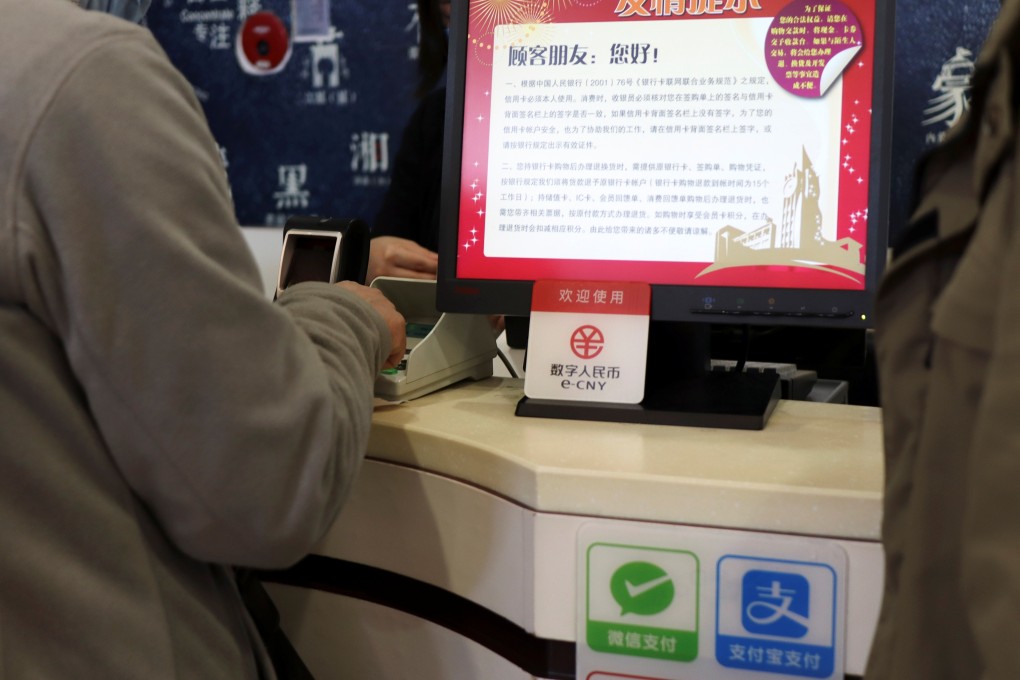Advertisement
Macroscope | How China’s digital currency push can boost fintech and the yuan’s global presence
- The digital yuan offers stability and convenience that most popular cryptocurrencies do not
- It will allow for better regulation of fintech, improve risk management for businesses, simplify cross-border transactions and promote overseas circulation of the renminbi
Reading Time:3 minutes
Why you can trust SCMP
3

Bitcoin recently shot past a market capitalisation of US$1.1 trillion, reigniting discussion about the future of digital currencies and stores of wealth. I should first say that I do not classify most forms of popular cryptocurrencies as a traditional currency.
There are three main reasons for this. They are way too volatile to be considered a standard of value, they cannot be easily bought or sold, and they cannot be easily used to pay for everyday goods and services.
There is, however, a digital currency that meets these requirements that is starting to gain traction – the digital yuan.
Advertisement
One of the earliest forms of paper currency can be traced back to 11th century China, when the promissory note otherwise known as jiaozi was used for trade in goods until hyperinflation caused its demise decades later. Today, China is the leader again among major economies in its push for a digitised currency.
The People’s Bank of China (PBOC) became the first major central bank in the world to launch its own digital currency in 2020, with trials ranging from payment of public employee wages to electronic cash payments at food and retail outlets. Unlike existing third-party payment functions provided by WeChat and Alipay, which process claims on a bank account much like a debit or credit card, it is the digital form of China’s fiat money and is designed to eventually replace paper money.
PBOC governor Yi Gang said the plan was not to create a new currency, such as bitcoin or Facebook’s Libra project, but to partially digitise China’s existing monetary base, or cash in circulation. Yi has said the new digital currency will not replace other parts of the money supply, such as deposits held in bank accounts or balances held by payment apps such as WeChat and Alipay.
Advertisement
Select Voice
Choose your listening speed
Get through articles 2x faster
1.25x
250 WPM
Slow
Average
Fast
1.25x

